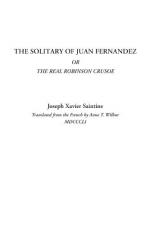‘Three years!’ murmured Catherine.
And her curls grew straight beneath the cold perspiration that covered her forehead.
CHAPTER III.
The Tour of the World.—The Way to manufacture Negroes—California. —The Eldorado.—Revolt of Selkirk.—The Log-Book.—Degradation. —A Free Shore.
The Swordfish, well provisioned, even with guns and ammunition, left Dunbar one morning with a fresh breeze, sailed down the North Sea, passed Ireland, France and Spain, the Azores, Canaries, and Cape Verd Islands on the coast of Africa, and, after having stopped for a short time in the harbors of Guinea and Congo, doubled the Cape of Good Hope, amid the traditional tempest.
Entering the Indian Ocean, and passing through the Straits of Sunda, she touched at Borneo, and at Java, reached the Southern Sea by the Gulf of Siam, passed the Philippine Isles, then, through the vast regions of the Pacific Ocean, pursued the route which had been marked out by the exploring ship of William Dampier in 1686. Like that, the Swordfish remained a few days at the Island of St. Pierre, before launching into that immensity where, during nearly two months, wave only succeeded to wave; at last she reached the coasts of South America, and cast anchor in the Gulf of California.
This gigantic voyage, which seemed as if it must have been attempted under the inspiration of science and with the hope of the most important discoveries, had been undertaken by Stradling with no object but of traffic and even of rapine. These had been the great ends of most of the bold enterprises which had preceded. The Spanish and Portuguese, in their discoveries of new continents, had thought less of glory than of riches; they had conquered the New World only to pillage it; the vanquished who escaped extermination, were forced to dig their native soil, not to render it more fruitful, but to procure from it, for the profit of the vanquisher, the gold it might contain. Among the European nations, those who had had no part in the conquest now sought to share the spoils. For this the least pretext of war or commerce sufficed.
Stradling availed himself of both these pretences; when he touched at the coasts of Guinea and Congo, it was to obtain negroes whom he expected to sell in America. At Borneo, the opportunity presented itself for an advantageous disposal of the greater part of his black merchandize; as he was a man of resources and not at all scrupulous, he soon found means to replace them.
In the Straits of Sunda, several barques, manned by negroes and Malays, had become entangled in the masses of seaweed which are every where floating on the surface of the wave; Stradling encountered them, made the rowers enter his ship, and obligingly took the barques in tow, to extricate them from their difficulty. But those who ascended the side of the Swordfish, descended only to be sold in their turn.




